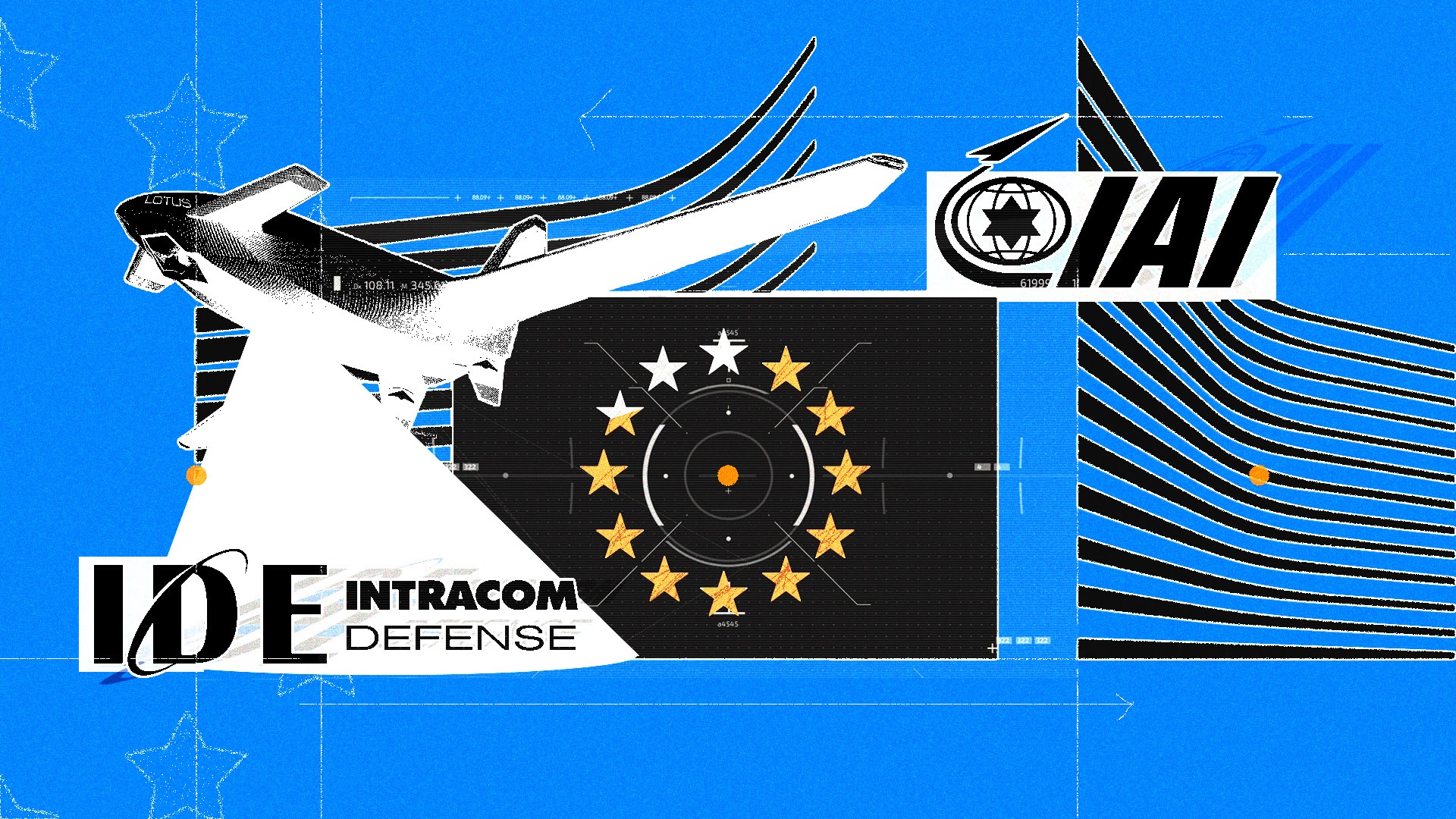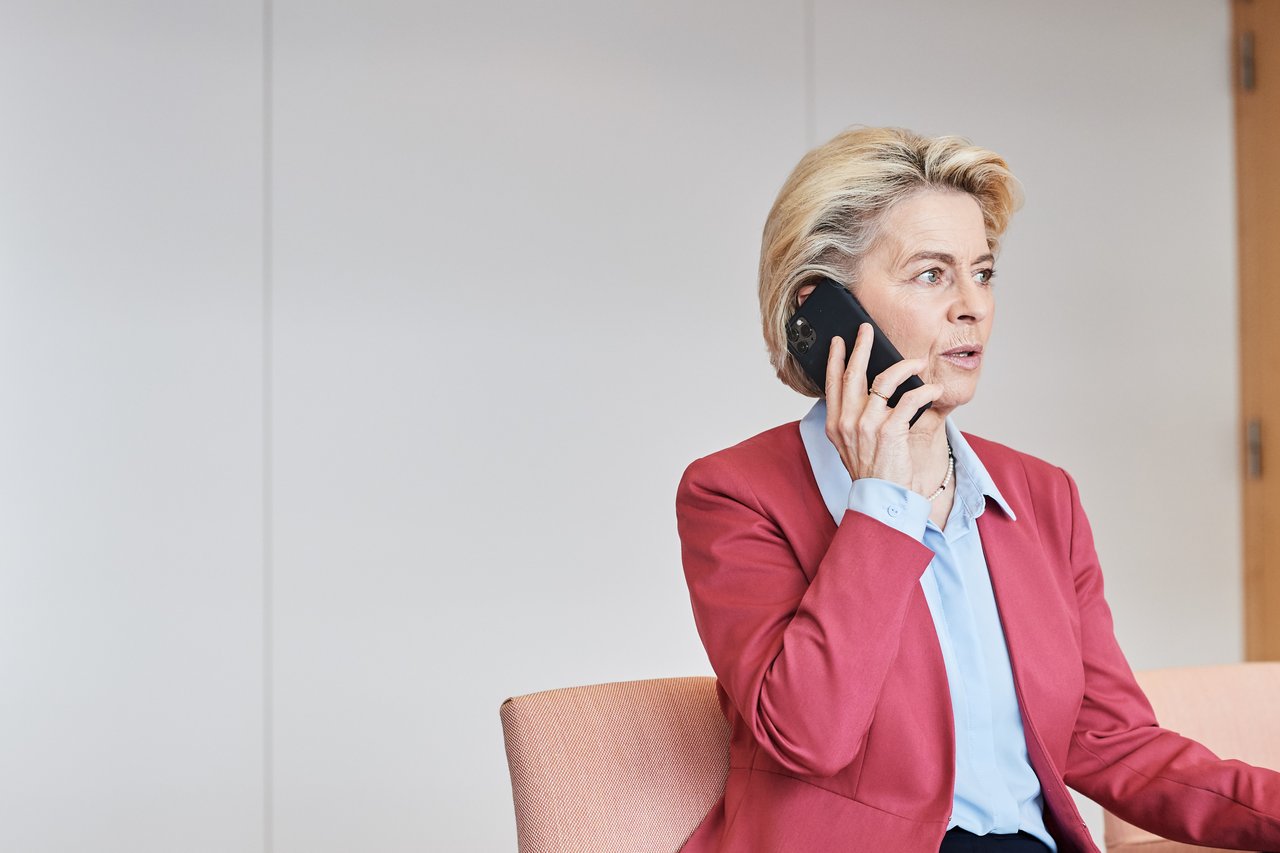Newsletter
Secrecy Tracker: Israel info withheld, 15 docs max 'rule' & vanishing texts
Dear reader,
We are back after the summer break with new episodes of transparency stonewalling and affronts to access to information.
I am Maria Maggiore, from Investigate Europe. I wrote this edition with my colleagues Harald Schumann and Pascal Hansens, as well as Elena Sánchez from EUobserver and Alexander Fanta from Follow the Money.
Withholding Information on Israel
In recent months, the European Commission has repeatedly shown itself reluctant to share information involving Israel, from EU research or defence-funding agreements and reports citing breaches of international humanitarian law in Gaza.
In April, I requested documents from the European Commission's directorate-general for defence and space to see statements the Greek government sent to Brussels regarding the company Intracom Defense. Based in Athens, Intracom Defense has signed 15 European Defence Fund (EDF) projects since 7 October 2023. It is owned by Israeli Aerospace Industry (IAI), Israel's largest public arms manufacturer.

Earlier this year, Investigate Europe and Reporters United showed how IAI, as the owner of Intracom Defense, was ultimately benefiting from millions of EU funds for EDF projects, including the development of combat drones.
We knew the Greek government had sent some kind of assurances to Brussels concerning the security or ethical risks posed by Infracom Defense’s ownership by a foreign company, but we didn’t know what they said.
Months after my request, DG DEFIS told me that it wouldn’t share the documents due to the “protection of commercial interests and intellectual property”.
We rejected this, given that Regulation 1049 on access to documents states that the protection of commercial interests does not apply if there is an “overriding interest” for citizens to know important facts.
Our questions in the press room as to whether DG DEFIS intended to reopen an investigation into the Greek-Israeli company's compliance with ethical principles, were also to no avail. A deafening silence surrounds this story.
EUobserver helped bring to light two important documents on Israel: an EU foreign service review of the human rights situation in Gaza dated 23 June 2024 and a foreign service review from 20 June 2025 on Israel's compliance with Article 2 of its EU association agreement, concerning human rights.
Both these documents referenced alleged Israeli crimes, such as "starvation ... torture ... apartheid", in language that bore a stark contrast to EU officials' soft public statements on Israel.

EUobserver also raised the alarm on misleading EU communications on Israel's compliance with ethics rules in the Horizon research programme in an article on 4 September, EU misled public on Israel drone-kill video.
The EU Commission had previously told EUobserver that an independent ethics advisor was looking into the drone-kill video and the Israeli grantee might lose EU money as a result.
In fact, Horizon's ethics advisor had no mandate to investigate, so there was no investigation at all. EUobserver only learned this after contacting the advisor informally.
And that’s not all. The European Commission refused to give public access to an internal note from its own legal service on the advisory opinion of the International Court of Justice on the policies and practices of Israel in the occupied Palestinian territory. EUobserver decided to take the matter to the EU Ombudsman, but the commission still refused to publish this internal note.
Big Tech: Proposal for a mysterious ‘fair solution’
On 31 July, the first day of my colleague Pascal Hansens’ long-awaited vacation, it arrived: a message from DG Connect with the mysterious subject line “Proposal for a fair solution”. It answered a request sent two months earlier by Investigate Europe, concerning specific minutes and related documents of six meetings between a Big Tech company and the commission.
DG Connect said that as our request covered a very large number of documents, “approximately 50”, they proposed a “fair solution”: unilaterally reducing the disclosure to “a maximum of 15 documents”.
Why 15? Which criteria guided this selection? And by whom were they applied? That remains the institution’s secret.
A glance at the well-known regulation 1049/2001 on public access led Hansens to Article 6(3), which states that in the event of an overly broad application, the institution may “confer with the applicant informally, with a view to finding a fair solution.”
Though that article makes no reference to any explicit number, several other journalists told Hansens they had also been informed they could only request a maximum of 15 documents, pointing to an institutional policy.
The commission assured us that there is no cap on documents per request, but each is assessed individually. It did not spell out what the criteria are.
Ombudsman investigates UVDL text messages – again!
Months after the landmark ruling in the Pfizergate case, the European Ombudsman has launched a new investigation into commission president Ursula von der Leyen’s use of text messages.
In the Pfizergate ruling, the EU’s General Court had blasted the commission for its lack of transparency in handling a request for messages exchanged between von der Leyen and Pfizer CEO Albert Bourla in the course of a pandemic-era vaccines purchase. The commission has since admitted to losing the messages — but only after Follow the Money’s Alexander Fanta had asked for them.

This time, the watchdog is scrutinising a text sent by French president Emmanuel Macron to von der Leyen amid efforts to lobby her over the Mercosur trade agreement, as first reported by Politico.
In a reply letter to Follow the Money’s Fanta 18 months later, the commission admitted von der Leyen had received the text via the messaging app Signal, but said there was no need to keep it because the “message reiterated a well-established position already communicated by France to the commission in the past”.
The commission also said that von der Leyen never keeps any of her Signal messages, but instead uses the app’s “disappearing messages” feature to auto-delete all exchanges, including those with EU leaders (see FTM’s report). While the commission insists text messages may only be used for non-confidential, short-lived communication, it also told Fanta that it auto-deletes all messages “to prevent major data leaks”.
Somewhat baffled, Fanta made a complaint to the Ombudsman.
The watchdog has already sent the commission a letter asking for details about how it dealt with the request, as well as its wider practices in regard to access requests and texting. The probe is likely to drag von der Leyen’s secretive attitude towards her personal communication into the spotlight once more.
In Brief
EU Commission shelves reform of document access rules
After 14 years of deadlock, the EU Commission quietly shelved a long-overdue reform of the regulation on public access to documents from the Commission, Council and Parliament. The proposed update to Regulation 1049, which dates from 2001, was dropped from the EU executive branch’s 2025 work programme. These rules are essential for civil society, lawyers and journalists, with transparency guaranteed in the Lisbon Treaty.
“Decisions shall be taken as openly and as closely as possible to the citizens,” Article 10 states. A commission spokesperson told Investigate Europe’s Harald Schumann that case law had since evolved, and that the proposal had been hamstrung by disagreement among the EU institutions since 2011.
It “continues to provide an appropriate and efficient legal framework,” Olof Gill said.
However, by maintaining the status quo it means officials can still deny access to documents if they believe that their publication "would undermine the protection of international relations" or "the financial or economic policy of the community or a member state." Consequently, the inner-workings of council negotiations, for example, will continue to be shrouded in secrecy.
Slovak MEP Veronika Ostrihonova (Renew Europe) told Investigate Europe that her group was disappointed by the decision to scrap the reform of the regulation, saying that she intended to draft an own-initiative report (INI) demanding at least a “transparency-by-design, proactive publication of all documents with limited and clearly defined exceptions”. The Greens also support the initiative, but without a majority in the parliament, any genuine reform will be some way off.
ClientEarth sues the Commission for secretly changing transparency rules
As EUobserver reported, lawyers from the London-based NGO ClientEarth have sued the European Commission for illegally changing its transparency rules to prevent the public from accessing crucial documents for their health and the environment.
Earlier this year, ClientEarth lawyers asked the commission to repeal fresh rules blocking access to key documents — such as drafts, legal advice, environmental impact assessments, and messages of its officials. The commission refused to do so, leaving no alternative but a judicial challenge to uphold democratic accountability and the right to know. “Despite the damning Pfizergate ruling that exposed secrecy at the highest levels of the EU and the political backlash culminating in a no-confidence vote, the commission is still choosing a path of secrecy. This is a direct assault on transparency, EU treaties guarantee openness, and the commission cannot simply rewrite the rules in secret”, said Ilze Tralmaka, ClientEarth lawyer.
Von der Leyen’s closed-door interviews
European journalists know how difficult it is to get a sit-down audience with von der Leyen. But now things have reached a new low: the Leading European Newspaper Alliance (LENA) was able to publish an interview with the German politician, but the answers were provided in writing to written questions, with no possibility of follow-up or changing a single comma in the translation imposed by the commission's services.
All eight LENA partners published this “interview”, except Spain’s El País.
If you come across any good examples of EU institutions dealing with transparency (or failing to!), let us know! And stay tuned for our next newsletter coming in December.
For any suggestions, examples, or complaints, email: [email protected], [email protected], [email protected], [email protected], [email protected]